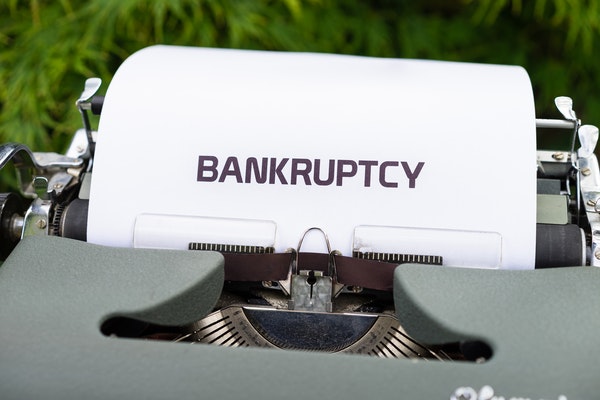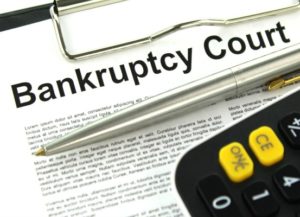Bankruptcy and credit card debt can be a daunting phase in your financial life. Understanding which type of bankruptcy is suitable for you is part of the process. So, what exactly is bankruptcy? American Consumer Credit Counseling has the answer. Bankruptcy is a proceeding in a federal court in which an insolvent debtor’s assets are liquidated and the debtor is relieved of further liability. There are two types of bankruptcy. Chapter 7 deals with liquidation, while Chapter 13 bankruptcy deals with the reorganization.
What Are the Types of Bankruptcy?
Chapter 7 Bankruptcy
This is when the court appoints a trustee who may liquidate or sell some things that you own to pay your creditors. Most of your debt will be canceled. But you may choose to pay some creditors, usually to keep a car or home in which the creditor has a lien.
Chapter 13 Bankruptcy
This is when your debt is reorganized into a single monthly payment. The payment will continue for 36 to 60 months. In no case may a plan provide for payments over a period longer than five years. You do not have to repay all your debt. You pay only as much as you can afford. But the minimum payment may be affected by the property you want to keep. When you complete the payments, debt not paid is discharged.
Chapter 13 Bankruptcy – Let’s Dig In
The most common debts tackled under chapter 13 bankruptcy include medical bills, credit card debt and personal loans. With this approach, if you have a court-approved repayment plan, your creditors are no longer allowed to make any collection efforts. However, you must be aware that other unsecured debts such as child support, student loans, and taxes must be paid. Also, you must stay current on your payments on your home and car. Chapter 13 bankruptcy prioritizes your debt by a bankruptcy court trustee based on your monthly income.
Chapter 13 vs Chapter 7 Bankruptcy
A prerequisite to Chapter 13 bankruptcy is that the consumer must have a regular income to enter into the debt settlement program. Therefore, if you have valuable assets and a steady source of income, this form of bankruptcy can be beneficial.
If you are truly unable to afford getting rid of debt, then Chapter 7 is what you should consider filing.
The primary difference between the two types of bankruptcy is about your assets. In Chapter 13 Bankruptcy you will retain your assets while in Chapter 7 you will liquidate them. Sometimes, in Chapter 7 the bankruptcy trustee will sell your assets to use the money towards debt recovery.
Pros & Cons of Chapter 13 Bankruptcy:
Pros
The key advantages of Chapter 13 bankruptcy are related to property tax and debt. Let’s look at them in detail.
Foreclosure Assistance:
One of the biggest benefits of Chapter 13 bankruptcy is the possibility of saving your home from foreclosure. With financial stresses and pressure to eliminate consumer debt, bankruptcy can have a major impact on the loss of your property. However, with Chapter 13 past due payments are broken into small manageable chunks. This allows the borrowers to avoid foreclosure if they can maintain normal monthly mortgage payments from the date the case is filed.
Mortgage Modification Assistance:
In some cases under Chapter 13 bankruptcy, you can force your lenders to modify the mortgage. However, this is relevant to your second and third mortgages and done via a process called lien stripping. Once a mortgage has been stripped, the debtor pays the loan at pennies on the dollar with the rest of their unsecured debt.
Car Payment Assistance:
Modifying secured debt to meet the value of collateral under Chapter 13 also applies to car loans. If your vehicle is over 910 days old, you can have the option of cramming down the loan to match the value of the car.
Assistance with IRS Related Problems:
According to a bankruptcy lawyer, Rick West:
“Chapter 13 provides several benefits to borrowers dealing with IRS debts. Some taxes can be discharged as unsecured debts, much like a credit card or medical bill, at pennies on the dollar. Taxes that must be paid in full are paid more economically in Chapter 13 since the IRS is not paid interest on the tax. Penalties are always paid as unsecured debts, even if the tax giving rise to the penalty must be paid as a priority claim. Finally, tax liens can be crammed down, and removed from the property, often by paying much less than the amount of the lien depending on how much equity there is in the property.” (Source: National Bankruptcy Forum)
Cons
Along with its benefits, Chapter 13 also comes with its fair share of disadvantages. The time that a typical Chapter 13 case lasts is much longer compared to other types of bankruptcy. Another drawback to Chapter 13 is the hit that it may take on your credit. It can stay on your credit report for 7 years. With the hit on credit and the commitment to debt payments, it is inherently harder to get new credit.
Eligibility for Chapter 13 Bankruptcy
The primary condition for eligibility when it comes to Chapter 13 Bankruptcy is their unsecured debts to be under $394,725 and secured debts are less than $1,184,200. These amounts change periodically based on the consumer price index. In terms of tax restrictions, only individuals or husbands and wives who file jointly are eligible. Businesses are not eligible for Chapter 13. The other requirement is to sit through pre and post-bankruptcy counseling with an approved credit counseling agency.
How to Go About Bankruptcy
Before filing for bankruptcy, you must complete pre-bankruptcy credit counseling. This process includes an analysis of your current financial situation, as well as alternatives to filing bankruptcy and a plan for managing debt. This will enable you to better understand the bankruptcy process and see whether filing bankruptcy is right for you.
Pre-Bankruptcy Counseling
You can take the pre-bankruptcy credit counseling course at an approved credit counselor’s office, by phone, or online. Allow 60 to 90 minutes to complete the session. During that time, you will be counseled on:
- Your financial situation and a review of your current financial buying habits and goals;
- Setting up a personal budget plan; and
- Discussing various debt options including bankruptcy.
After you finish your course, you will receive your first certificate to file for bankruptcy. If you choose to proceed, the certificate is valid for six months.
Post-Bankruptcy Debtor Education
The post-bankruptcy credit counseling certificate focuses on educating consumers on future money management. It must be filed:
- Within 45 days after the creditors meeting for Chapter 7 cases; and
- No later than the date of your last payment on the repayment plan or the date of the filing for the Motion for a Discharge for Chapter 13 cases.
Bankruptcy certificates enable consumers to understand the factors that led to their financial condition, as well as money management going forward. If you are working hard to get rid of debt bankruptcy may be your option.
What information do you have to have in hand before filing Chapter 13 Bankruptcy?
- List of creditors and the amount you owe
- The source of your income and the amount you earn
- List of properties you own
- Living expenses
- Copy of most recent federal tax return
Bankruptcy is a complicated process. It can be a strain on your financial life for a long time. Therefore, you must speak with the right professionals before entering the process. Start your journey with ACCC. Speak with a certified bankruptcy counselor today. Or, sign up for a free credit counseling session to see what other options there might be besides bankruptcy.







